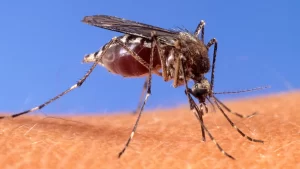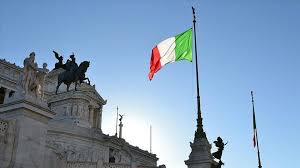Portugal wildfires challenge tourism: How Lisbon flights and travel plans are adapting smartly

Lisbon: Portugal now faces seven major wildfires, with nearly 4,000 firefighters deployed and the EU Civil Protection Mechanism activated to provide critical support. On Aug 15, Portugal activated the EU Civil Protection Mechanism, requesting four Canadair aircrafts. The country has extended its state of alert through the weekend, as relentless heat and dry conditions continue to strain emergency response and threaten tourism-dependent regions.
For tourism industry professionals, this means more than disruption, it demands creativity, rapid adaptability, and resilient storytelling to reassure guests, preserve revenue, and safeguard confidence.
Tourist-favorite trails like the Passadicos do Paiva—renowned among hikers—remain closed amid blazing Portugal wildfires. Nearly 4,000 firefighters are working to contain fires that compromise air quality and access.
Tip for DMOs & Hoteliers: Reinforce bookings with offers for indoor cultural experiences, vineyard tours, or wellness retreats, promoting safety and localized charm. Communicate transit updates proactively and highlight smoke filters or air-quality assurances.
Regions like Peneda-Geres face thick smoke and evacuation alerts as wildfires compromise what’s typically seen as serene, remote retreats.
Smart Pivot: Emphasize urban safe havens, coastal escapes, or small-group gastronomic tours—with flexible cancellation policies and real-time updates—to address the heightened caution among nature-loving travelers.
Portugal’s hotel sector is contending with a dual challenge: shrinking occupancy in fire-prone areas and rising operational costs—from air-conditioning due to heat to post-smoke cleaning and staff strain.
But within disruption lies opportunity:
Incentivize last-minute coastal bookings when inland alerts rise.
Partner with carriers to send text alerts guiding arrivals to safer lodging clusters.
Introduce “Calm Assurance Stays”, promising clean air indoors, real-time incident briefings, and flexible rebooking.
Strategic messaging around guest safety and flexibility can pivot investor concerns into competitive advantage.
Though wildfires are inland, air transport channels remain vital.
Airports remain operational; earlier August strikes caused cancellations/delays, but a deal on Aug 13 canceled further August strike actions. This could compound challenges for Portugal flights overall.
Strategic moves:
Use messaging like: “If trails close, Lisbon tourism offers alternate, safe city stays.”
Collaborate with airports and airlines to send alerts about flight status or rerouting.
Portugal Wildfires: Meetings & Events Strategy Shift
Corporate and MICE events face heightened risk when proximity to wildfire zones is uncertain.
DMOs Should:
Offer “Fire-Safe Event Packages” with alternative venues, air-quality monitoring, and flexible timelines.
Promote Lisbon flights and tourism and city-based venues as dependable back-ups for disrupted rural bookings.
Communicate early to reassure planners of fallback options and seamless event pivoting.
Visitors from long-haul markets—like North America and Australia—are now highly sensitive to climate risks.
Marketing Advice:
Prioritize shoulder-season packages with milder weather and reduced fire risk.
Be transparent: “Here’s how we monitor fire conditions so you can travel worry-free.”
Emphasize Lisbon tourism and secure infrastructures to boost confidence across all Portugal travel segments.
While overall tourism data from this fire season is still emerging, the activation of 16 EU Civil Protection responses—equal to all of last year—signals growing risk to tourism flows. Traveler sentiment is shifting: high-value leisure and nature tourists may reroute quickly, while short-haul domestic travel may prove more resilient if alternative offers are compelling and safe.
Offer “Wildfire Resilience Packages” with safety assurances and flexible terms.
Share real-time fire alerts via SMS, social media, and mobile app.
Market shoulder-season alternatives to cautious travelers.
Align with airports and airlines for emergency re-routing during Portugal flights and Lisbon flights.
Train staff on empathetic crisis communication.
Coordinate messaging with local authorities and tourism boards.
Use storytelling to spotlight resilience and community strength in Portugal.
Spotlight Lisbon tourism as a stable complement to impacted inland offerings.
Portugal’s tourism sector is currently navigating a fire-prone summer, with seven active Portugal wildfires and mounting climate pressure. Yet, resilience lies not in denial but in adaption—through flexibility, guest reassurance, and strategic storytelling. Those who lead with safety, creativity, and regional solidarity will not only survive this season but build loyalty that endures beyond the flames.





